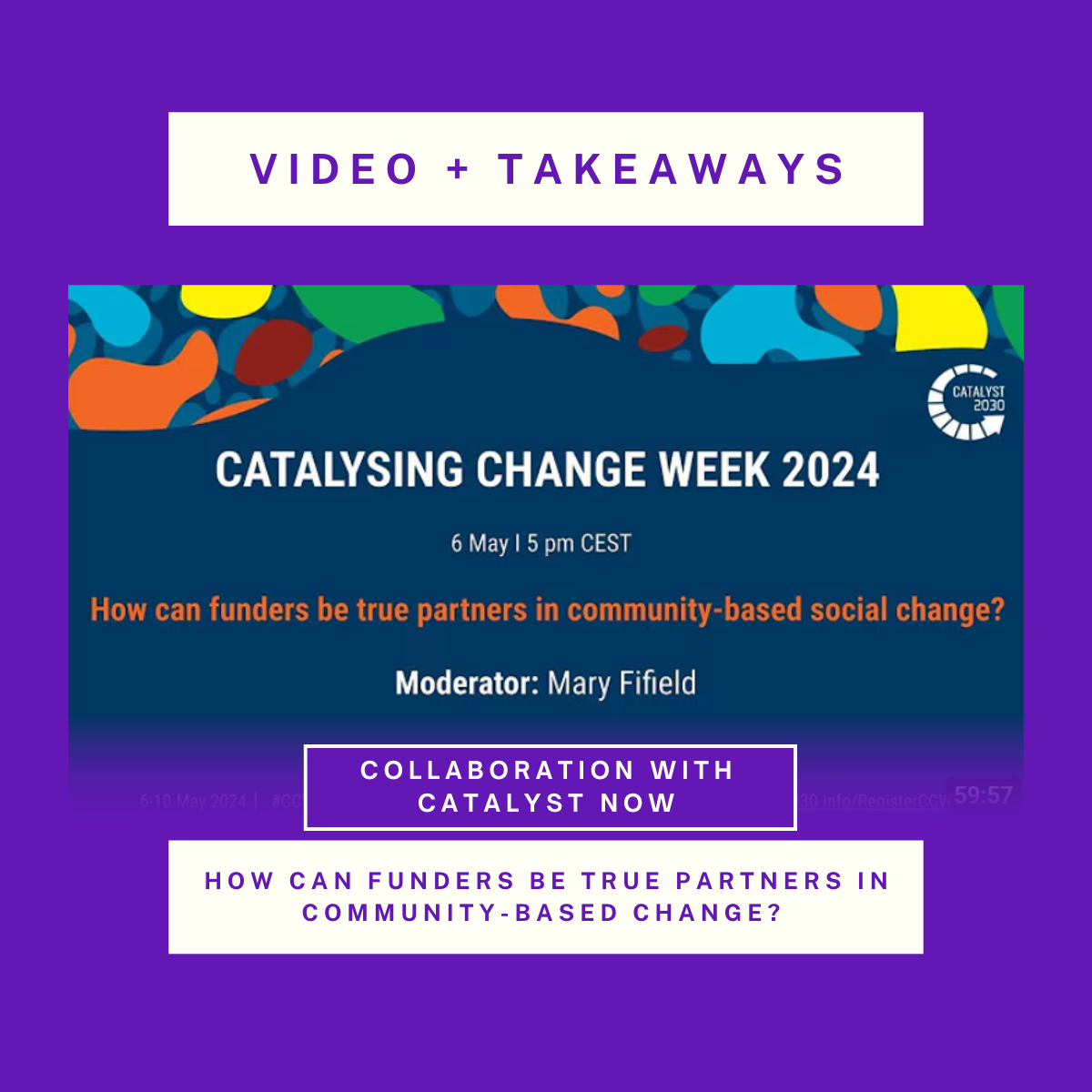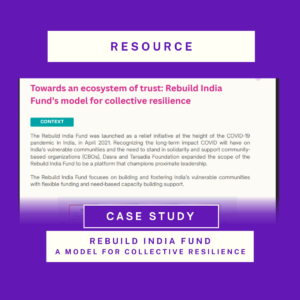During Catalyst Now’s Catalysing Change Week 2024, we gathered to explore this question:
How can funders be true partners in community-based social change?
In this conversation, Mae Ardón and Emily Bild (GoPhilanthropic Foundation), Anjana Goswami (ECF, India), and Alejandra Rosado (Una Mano Para Oaxaca, Mexico), guided by moderator Mary Fifield (Marigold Fund), shared candid insights and practical reflections.
What stood out in this session was hearing both sides of the partnership -funders and grassroots leaders- share honestly about their work together, offering a rare window into the trust, challenges, and lessons learned along the way.
It was a thought-provoking exchange that easily could have gone far beyond the one-hour mark. Watch the full recording here, or scroll down for 10 key points that came out of the conversation:
1. On site meetings are hugely valuable for getting to know each other and for understanding the complexities of community-based work. Often, these visits reveal more than any written report can, offering a window into the day-to-day realities, challenges, and strengths of the communities themselves.
2. Transparency and openness are key – funders should encourage and allow partners to be transparent about their challenges, as well as their successes and be open about their challenges as a funder too. When a partnership feels more equal and people connect first as human beings, partners are more comfortable to share the realities of their work and not just a ‘rosy picture’.
3. Funders need to look beyond the numbers when it comes to impact. Real grassroots, community-based change is often intensive and time consuming. Funders need to understand this and not base impact merely on the number of people reached.
4. Relationships between funders and partners can stretch beyond the financial transactions – for example, by providing mutual sounding board support. This kind of exchange offers invaluable strategic perspectives, helping both sides make thoughtful decisions, adapt along the way, and strengthen the long-term sustainability of their work.
5. Funders should invest in building the capacity and strengthening the organization beyond providing grant funding – take a long-term view and play a role in ensuring the work can continue beyond their grants.
6. Recognize that funders are there to serve and support partners rather than the other way around – they should ask what they could do to support the organization as opposed to seeing partners as vehicles to serve their own goals. Community-based organizations are the experts in their communities and work.
7. Funders should continually seek feedback on their approach and practices and be prepared to act on it and make changes accordingly. Building the trust needed for honest, meaningful feedback takes time and intention, but it opens up new possibilities for learning and allows funders to adapt their practices to be more effective in supporting communities, and in fulfilling their own missions too.
8. Funders should support salaries and core costs – invest in an organization’s administrative functions so that they can perform their work more effectively. This not only signals trust in the organization’s leadership and priorities, but also enables them to use their full capacity and resources to advance their mission in a more sustainable and impactful way.
9. Funders should be flexible and open to re-purposing grants as needs change. In turn, partners need to be open and transparent with funders about their true needs. This approach reflects the reality that communities and the world are constantly evolving – living systems that shift, adapt, and face new challenges and opportunities over time.
10. Understand that we are all working for communities with communities – the communities must remain the priority in all funder-partner relationships.
In collaboration with:
Catalyst Now
A dynamic global movement of social innovators transforming systems and driving sustainable change to advance the UN Sustainable Development Goals worldwide. Learn more: https://catalystnow.net/
Anjana Goswami
Managing Trustee and Executive Director – Equal Community Foundation (ECF)
General coordinator of Una Mano para Oaxaca (UMPO). She holds a degree in Food Industry Engineering from ITESM, Querétaro campus, and since 2015, she has supported social projects focused on self-managed livelihoods. Through UMPO, Alejandra has collaborated with both national and international funds to strengthen the governance and agency of Indigenous women and children, particularly by preserving local knowledge and traditional trades in the Isthmus of Tehuantepec, Oaxaca. Today, as the organization continues to evolve, Alejandra is also training as an educator at the Centro de Desarrollo Antroposófico, aiming to bring an educational lens that enriches the community programs she supports.




